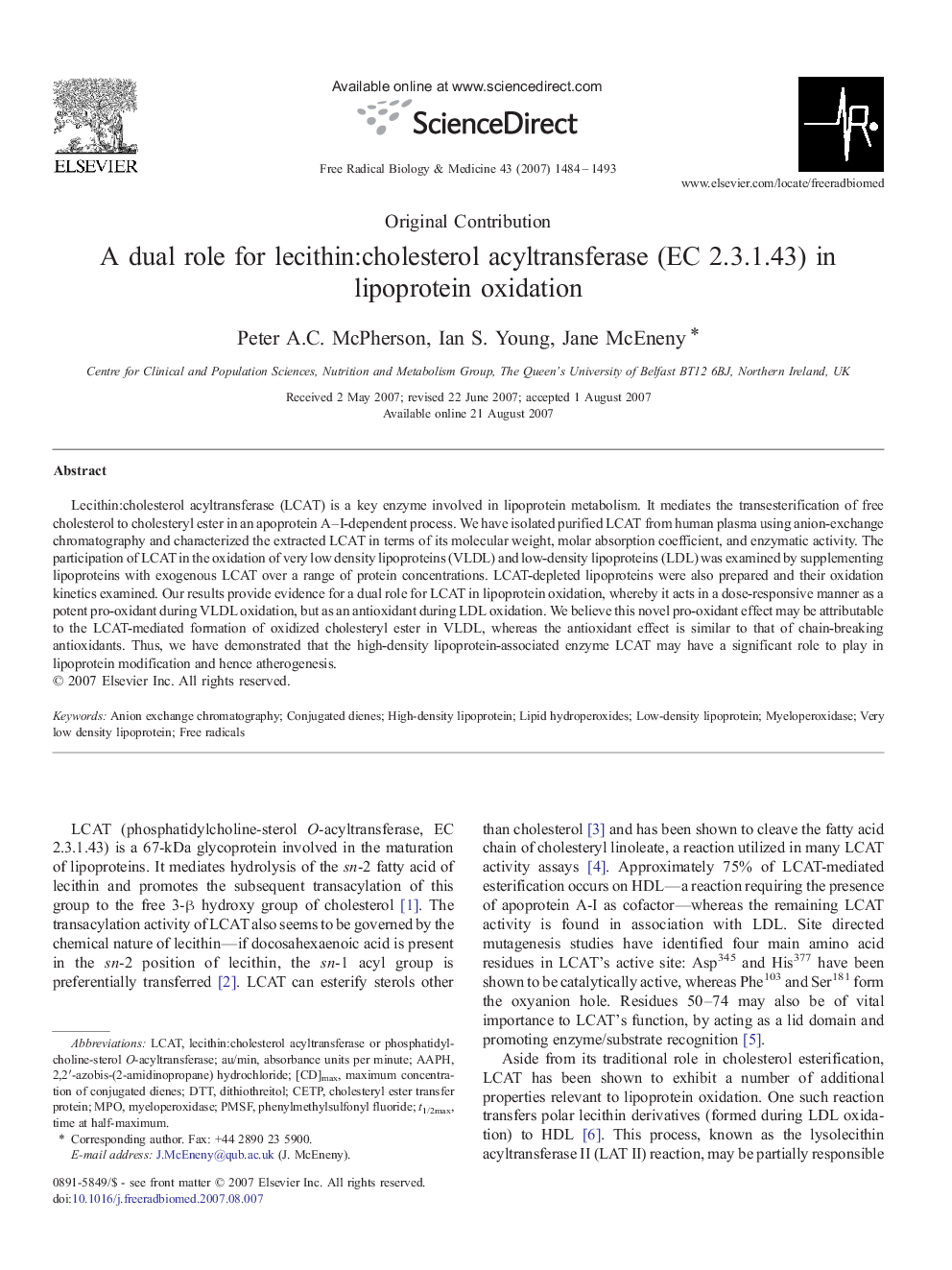| Article ID | Journal | Published Year | Pages | File Type |
|---|---|---|---|---|
| 1911266 | Free Radical Biology and Medicine | 2007 | 10 Pages |
Abstract
Lecithin:cholesterol acyltransferase (LCAT) is a key enzyme involved in lipoprotein metabolism. It mediates the transesterification of free cholesterol to cholesteryl ester in an apoprotein A-I-dependent process. We have isolated purified LCAT from human plasma using anion-exchange chromatography and characterized the extracted LCAT in terms of its molecular weight, molar absorption coefficient, and enzymatic activity. The participation of LCAT in the oxidation of very low density lipoproteins (VLDL) and low-density lipoproteins (LDL) was examined by supplementing lipoproteins with exogenous LCAT over a range of protein concentrations. LCAT-depleted lipoproteins were also prepared and their oxidation kinetics examined. Our results provide evidence for a dual role for LCAT in lipoprotein oxidation, whereby it acts in a dose-responsive manner as a potent pro-oxidant during VLDL oxidation, but as an antioxidant during LDL oxidation. We believe this novel pro-oxidant effect may be attributable to the LCAT-mediated formation of oxidized cholesteryl ester in VLDL, whereas the antioxidant effect is similar to that of chain-breaking antioxidants. Thus, we have demonstrated that the high-density lipoprotein-associated enzyme LCAT may have a significant role to play in lipoprotein modification and hence atherogenesis.
Keywords
Related Topics
Life Sciences
Biochemistry, Genetics and Molecular Biology
Ageing
Authors
Peter A.C. McPherson, Ian S. Young, Jane McEneny,
